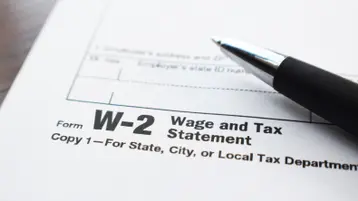
Table of contents
- 1.When do employers use subminimum wage
- 2.The problem with subminimum wage
- 3.Looking ahead
After reading this headline you may be asking yourself, “Wait … isn’t minimum wage supposed to be the MINIMUM amount an individual can be paid for performing labor?” In most cases, the answer is yes. However, thanks to a loophole in the Fair Labor Standards Act, some employers are able to pay their employees a subminimum (or less than the federal minimum) wage. To understand why, we have to go all the way back to 1937. In 1937, President Roosevelt enacted a federal minimum wage while formulating the Fair Labor Standards Act of 1938. During the process, Labor Secretary Perkins quietly slipped in a provision for a subminimum wage. According to Perkins, a subminimum wage was suitable for, “persons who by reason of illness or age or something else are not up to normal production.” This provision was vague by design which led to many employers exerting their racial bias by paying a subminimum wage to workers of color. Today, even with the Equal Employment Opportunity (EEO) laws prohibiting job discrimination, Perkin’s provision of the Fair Labor Standards Act — Section 14(c) — is still very much alive and well. Section 14(c) allows for employers to pay certain employees well below the mandated minimum wage for their state, but which individuals are eligible for subminimum wages due to the Fair Standards Labor Act? Let’s dive into that below.
When do employers use subminimum wage
Employment of Workers with Disabilities: Section 14(c) of the FLSA allows employers who have received a special certificate from the Department of Labor’s Wage and Hour Division to pay wages less than the federal minimum wage to workers such as:
- Students who work in retail, agriculture, or higher education institutions. They receive payments at rates not less than 75% of the applicable federal minimum wage under section 6(a) of the Fair Standards Labor Act
- Individuals with a physical or mental disability that is a hindrance to them finding standard work
- A tipped employee who receives at least $30 per month in tips. Employees may pay just $2.13 per hour in direct wages if that amount combined with tips equals the federal minimum wage. If not, employers must pay the difference.*
The problem with subminimum wage
According to Forbes, “Out of the small population of people with disabilities who are hired, many receive sub-minimum wages. In recent years, there have been reports of an estimated 420,000 individuals with disabilities who have been paid an average of just $2.15 per hour.”
There are still over 100,000 workers with disabilities across the U.S. who are paid a subminimum wage and over 46 states with employers who have active 14(c) certificates.
Given how the FLSA was written, there is no floor for how little workers with disabilities can be paid. There are still over 100,000 workers with disabilities across the U.S. who are paid a subminimum wage and over 46 states with employers who have active 14(c) certificates. As the Americans with Disabilities Act of 1990 already prohibits discrimination of workers based on disability, paying them a subminimum wage makes little sense and more so, goes against their civil rights.
Looking ahead
As of September 2020, the Commission on Civil Rights has called for an end to subminimum wage for disabled workers across the U.S. The commission has taken issue with 14(c)'s lack of regulation and livability, in addition to its violation of the civil rights protection individuals with disabilities have the right to access. There are now several bills pending in Congress to do away with the use of subminimum wage for workers with disabilities.
There are now several bills pending in Congress to do away with the use of subminimum wage for workers with disabilities.
Many of these bills seek to increase the wages of disabled workers to the federal minimum wage and stop the issuing of certificates to employers from the Wage and Hour Division of the Department of Labor. The 2 main bills gaining tractions are:
- The Raise the Wage Act which aims to raise the minimum wage for all workers, including those with disabilities, to $15 an hour. It passed the Democratic House with high praise from Senator Bernie Sanders
- The Transformation to Competitive Employment Act would phase out subminimum wage certificates and support employers as well as employees in creating inclusive workspaces
As workers with disabilities are continually breaking barriers in the workplace, many state and federal leaders have rallied behind these bills, including President-elect Joe Biden who has pledged to eliminate 14(c). Given that the creation of the FLSA was some 80 years ago during a time in America where workplace inclusion wasn’t necessarily top of mind, it is a hopeful sign that politicians are now supporting the elimination of 14(c) so that all workers can be paid the federal minimum wage.

Dan Marzullo
Table of contents
- 1.When do employers use subminimum wage
- 2.The problem with subminimum wage
- 3.Looking ahead





